Croydon tram crash: 'He was on his way to work and then he was gone'
- Published
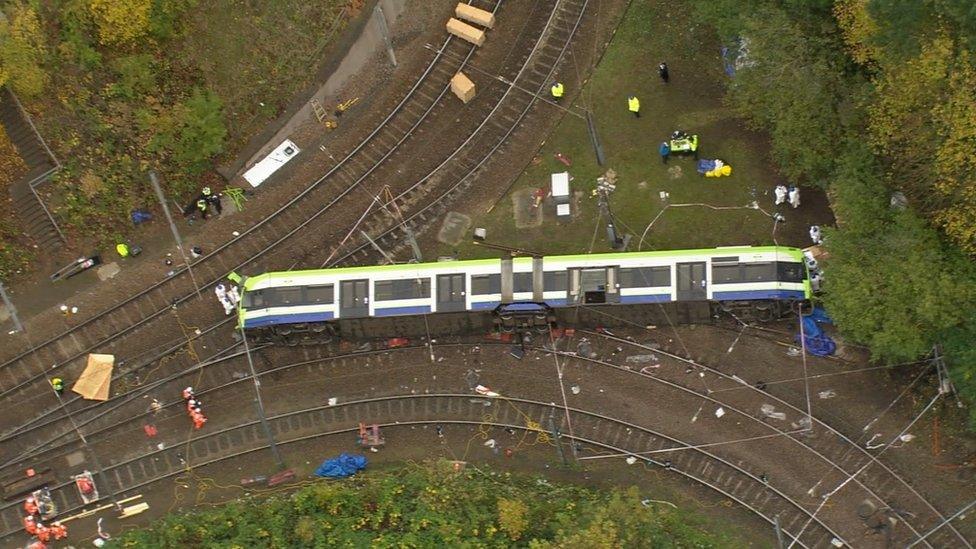
Seven people were killed when a tram derailed near to Sandilands tram stop in November 2016
On a cold, wet morning in November 2016, Mark Smith boarded a tram bound for Wimbledon via Croydon. Just minutes later it over-turned and he was killed.
Along with six other south Londoners, the 35-year-old died in one of the worst tragedies in Transport for London's history.
Sixty-one other passengers onboard were injured, 19 of those seriously.
Mark's mother, Jean says she will never be whole again.
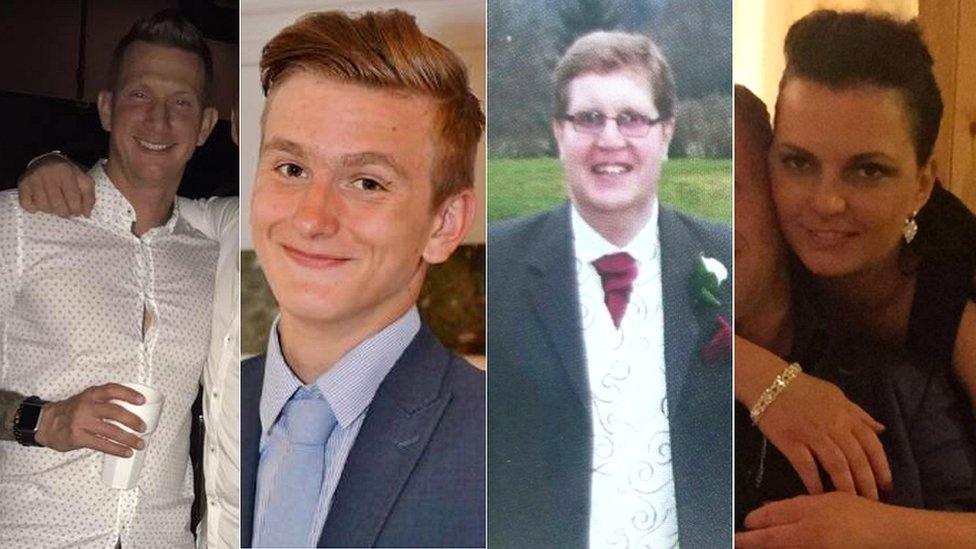
Mark Smith (far left) died in the crash along with Dane Chinnery, Phil Seary and Dorota Rynkiewicz (L-R)
After four-and-a-half years of waiting, the inquests into their deaths will begin on Monday.
Jean says the last four years have been awful and difficult and at times she has felt forgotten.
"Mark drove up to the tram stop and we really wish he'd missed that tram," she said.
"But Mark being Mark and always being punctual, he was on that tram and within two minutes he was gone. It's as simple as that.
"Sorry but that's the reality of it. He was just on his way to work like most of them that morning especially that early."
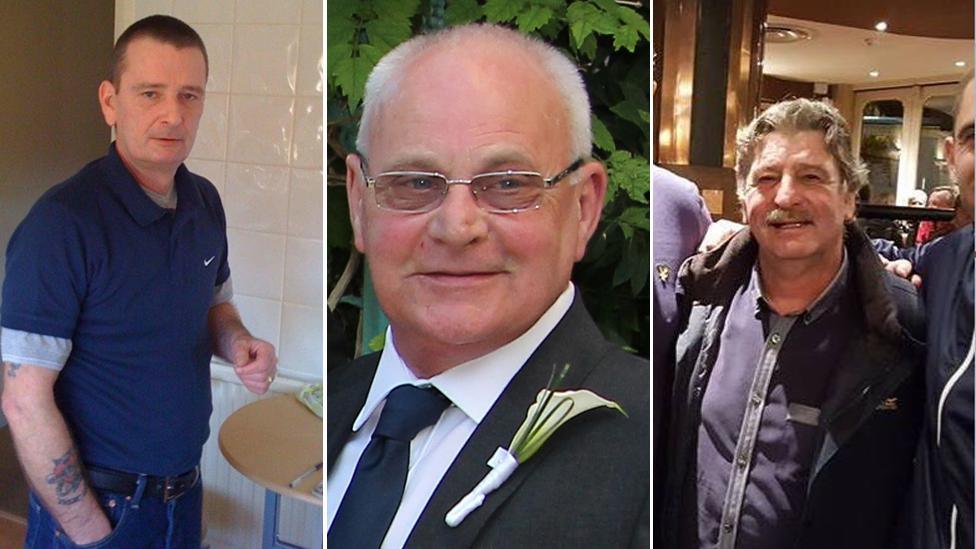
Philip Logan (left), Donald Collett (centre) and Robert Huxley (right), also died
The Rail Accident Investigation Branch (RAIB) reported the tram was going too fast on the corner at Sandilands Junction.
The route's speed limit was 20kmph but the tram was doing more than triple that at 73kmph when it derailed.
RAIB found it was probable the driver temporarily lost awareness.
Families want to know why that happened and why the tram network was not safe.
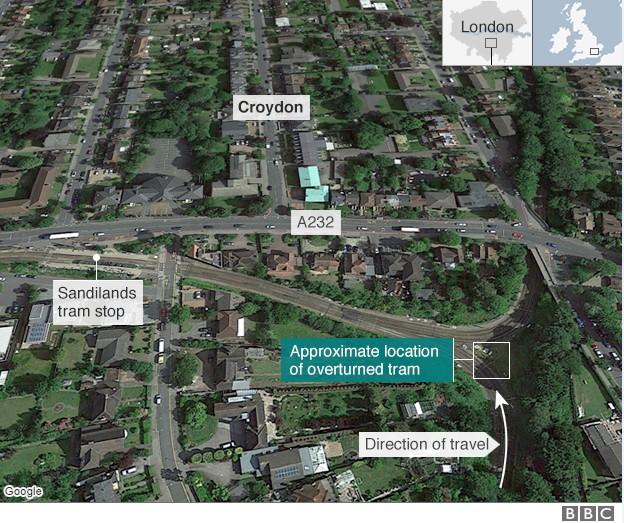
The RAIB report found management was not aware of previous incidents involving late braking on the same corner.
Drivers did not report such incidents as they were afraid they would be disciplined, the report also found.
Investigators found inadequate signage and no mechanisms to monitor driver alertness or to automatically apply the brakes when the tram was travelling too fast.
Both have since been introduced, but, that is too late for Jean and the other families. They want to know why safeguards were not in place.
There are also questions around how the industry managed fatigue and safety.
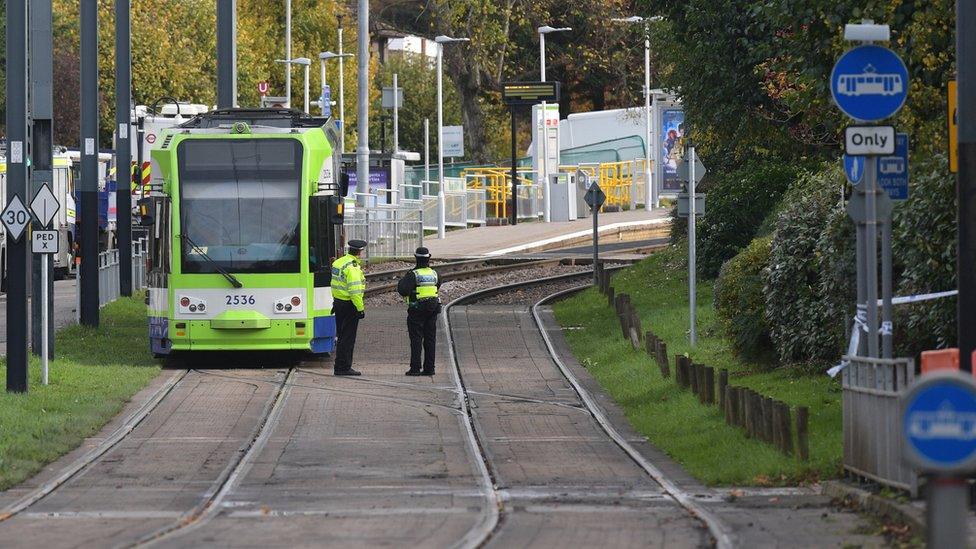
The tram had been travelling towards East Croydon before it crashed
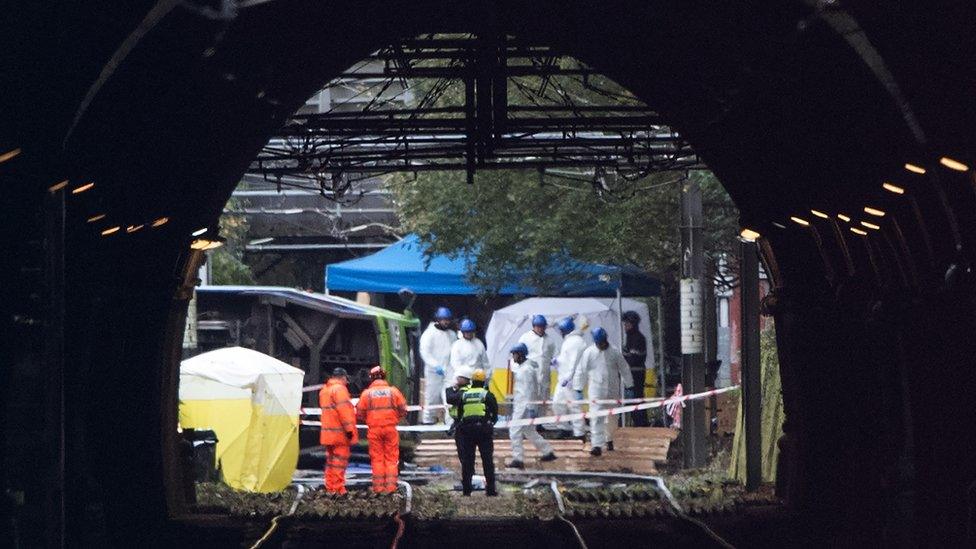
Investigators found the tram derailed while travelling at three-and-a-half times the speed limit
"We just want a sense of peace," Jean said.
"Maybe the outcome from the inquest is going to answer everything that needs to be answered, that addresses everything that needs to be addressed.
"Those of us that are left to pick up the pieces can get on with the rest of our lives in the best way we know how without our loved ones and that's the best I can hope for."
The inquests at south London Coroner's Court are expected to last 13 weeks.
